April 2017 Oblate Reflections and Lectio Divina
Topic: Praying the Psalms
We can read the Psalms with three layers in mind: what the Psalm meant the first time it was prayed in history; how the Psalm hints at the life of Christ in the New Testament and how Jesus would have prayed it; and, finally, how it applies to our own lives and how we can pray the Psalms now. We pray Psalms 22: 1-32.
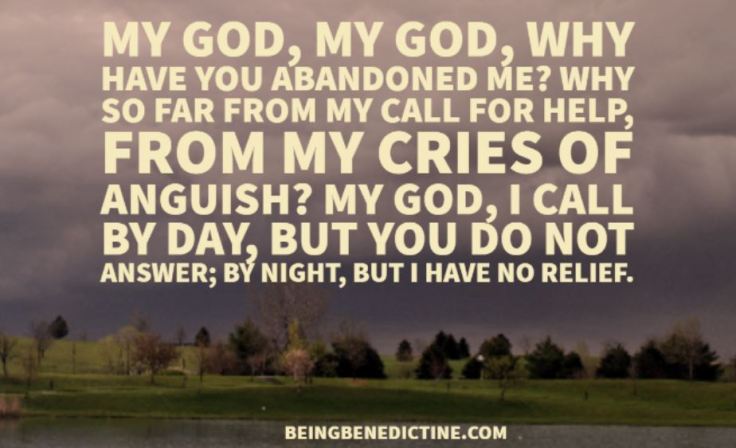
In practicing Lectio Divina, after reading the Scripture out loud, we contemplate, consider and reflect on what we have heard. The Scripture is read again. After some time of silence, we are welcomed to share a word or phrase that speaks to us.
All night long I call and cannot rest, my soul will live for you. They never trusted you in vain. Do not stand aside trouble is near. They trusted and you rescued them. If God is your friend let God rescue you. Rescue my soul from the sword. More worm than human. My heart is like wax melting inside me.
One participant said the images of wild beasts in the desert environment was overwhelming—she had no words. We rest in silence, some speak, a few sniffles, a sigh. The verses and words in this Psalm touch each of us in a unique way.
What resonates with you from reading Psalms 22? This is what resonated with us:
So many feelings are expressed in this Psalm—complaint, fear, desperation, anguish, hopelessness. We tend to think that we should feel in a certain way, that trust is the superior action or emotion, but it is human to feel all of the desperate feelings mentioned. We can accept all of our emotions because God lets us feel all of those things and desires that we express them.
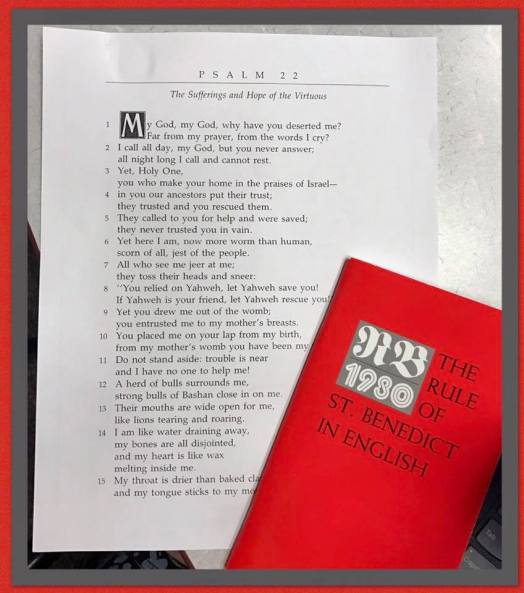
The person speaking in the Psalm is having difficulties trusting God. We have this same difficulty; we rely on our own strength before we surrender and give everything to the Lord. We don’t have to despair. That is the symbol of Christ on the cross; that is how far God will go to show us that he is in charge. We can complain, as the Psalmist does, but he is finally led to praising God and giving thanks. It is not either/or, it’s both/and. The two opposite emotions are held together—doubt, fear, complaint and angst are held together at the same time as trust and hope.
The dark night of the soul is a transformational process. A vulnerability is required to speak the truth of how one feels, and then humility in saying that one trusts in God. It is a process, but ultimately the Psalmist, and hopefully we, get to the last line—“MY SOUL WILL LIVE FOR YOU.” We live with doubt and ambiguity. Every time we go through that depth, we re-experience it. It changes us to open ourselves up for God to flow in. It is a practice, it’s not just Pollyanna thinking. There really can be bad things happening, but we become more practiced at this surrendering and opening up to. IT IS A PROCESS. Starting over again and again. ALWAYS WE BEGIN AGAIN, St Benedict said.
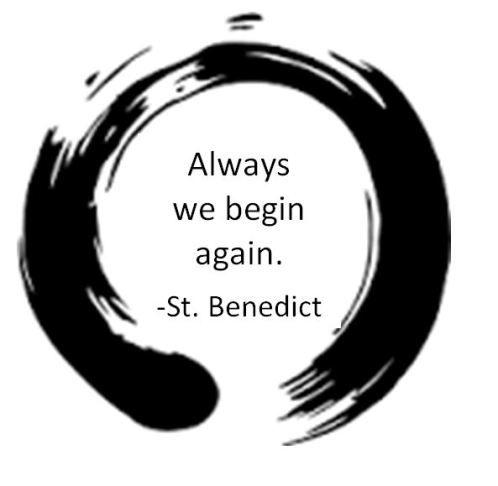
Our prayer is a process—we ask for help, God gives us insight and strength to be transformed. The fruit of the prayer helps us go through the difficult times in joy and peace. But then we fall back again; it’s cyclical. This Psalm helps us see that there is a process—what we perceive as bad is not just all bad, there is a blessing in it. Even if one does is not in a place of desperation, reading some Psalms connect us to the body of Christ who DOES feel desperate in that moment in time of reading the Psalm.
Only when we have poured out ALL can we begin to trust God. Consider the story of the Prodigal Son—it was only in the LAST MOMENT that he realized he can be loved, that he can have another chance. Jesus said “WHY DID YOU ABANDON ME?” near his last moment. In all of his humanity, Jesus suffered, but in the end, he does the will of the Father. There is a God that loves you, accepts you and is present in your suffering. There is a WILL to trust, despite not feeling it.
Psalm 22 gives us hope that things will get better; we will not despair. The problem is that we think “getting better” means the outcome is better, we get our will, problems are fixed, relationships are healed and we feel better—but this is not “getting better”, this is still an attachment to ego. Things will get better when we let God’s will be done. God is WITH US in it all, no matter the outcome.
The spirit of the Psalm is passed generation to generation. What happened with the Israelites, happens in every time and everywhere. “Suffering makes all people equal…Indeed, it is your absence that makes up my suffering…the loneliness of the cross on Good Friday.” (Psalms for Contemplation, Carlos Valles, SJ)
An oblate who has suffered a recent death in the family shared, “Jesus really walks with us. Jesus was comforted on his walk to Calvary. He comforts us.”
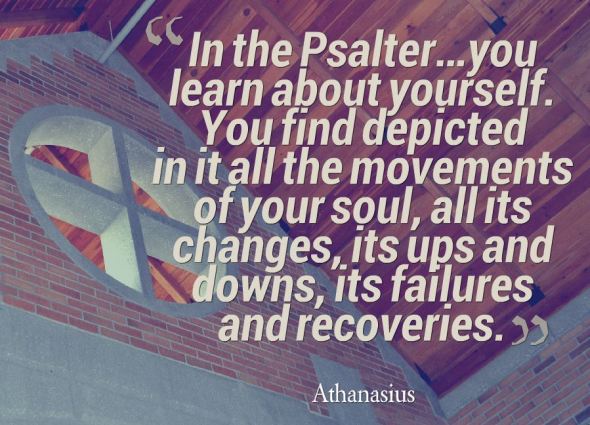
According to Athanasius “in the Psalter…you learn about yourself. You find depicted in it all the movements of your soul, all its changes, its ups and downs, its failures and recoveries.” The Psalter is a mosaic of prayers that reflects Israel’s history and it can tell our own life stories.
Source for discussion: Study Guide for the Rule of St. Benedict with Reflections for Oblates and All Who Seek God, Maria-Thomas Beil, OSB Pages 89-97
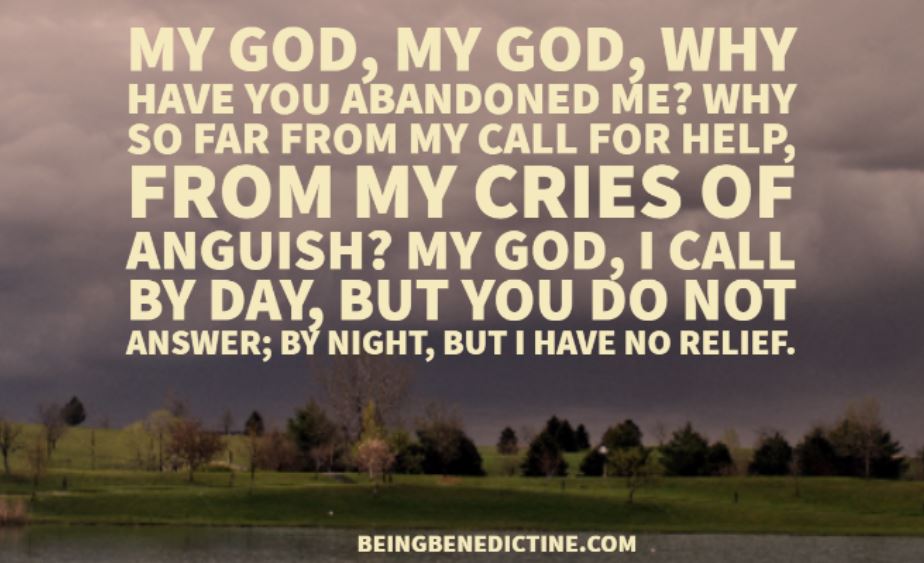
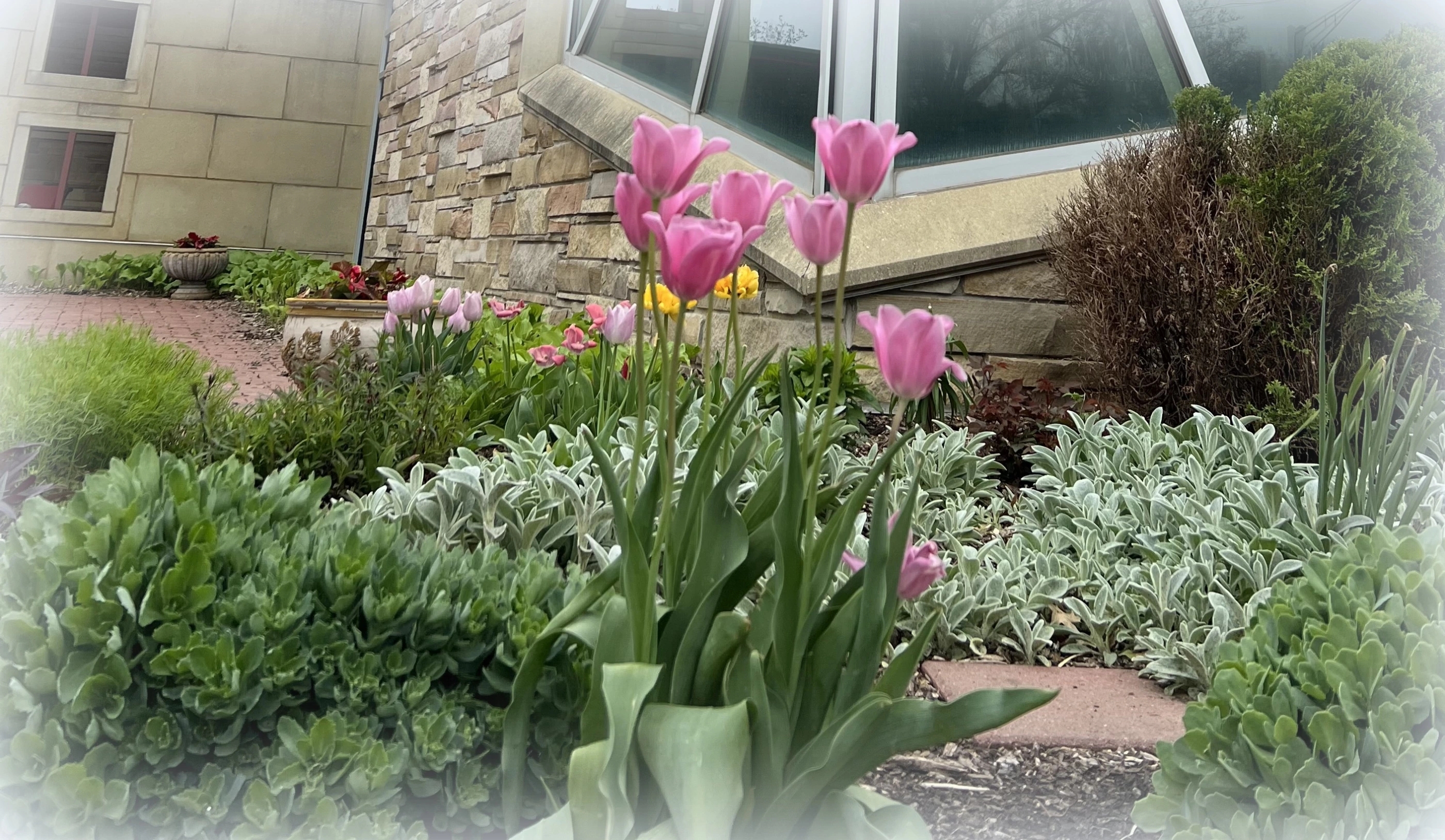
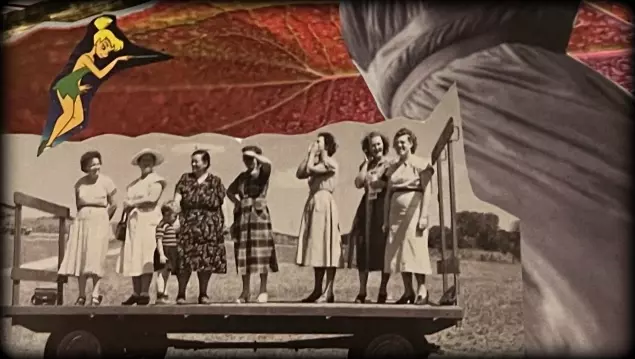

April 19, 2017 at 9:18 am
Dear Jodi,
Thank you for another superb job of capturing the high points of our discussion and enhancing it with pictures and word presentations. Wonderful. Thank you
LikeLike
April 19, 2017 at 9:21 am
Thank you. So much to reflect on in this one discussion. It was perfect right before the Holy Days. Thank you always for you guidance, leadership and insight. You are a gift.
LikeLike